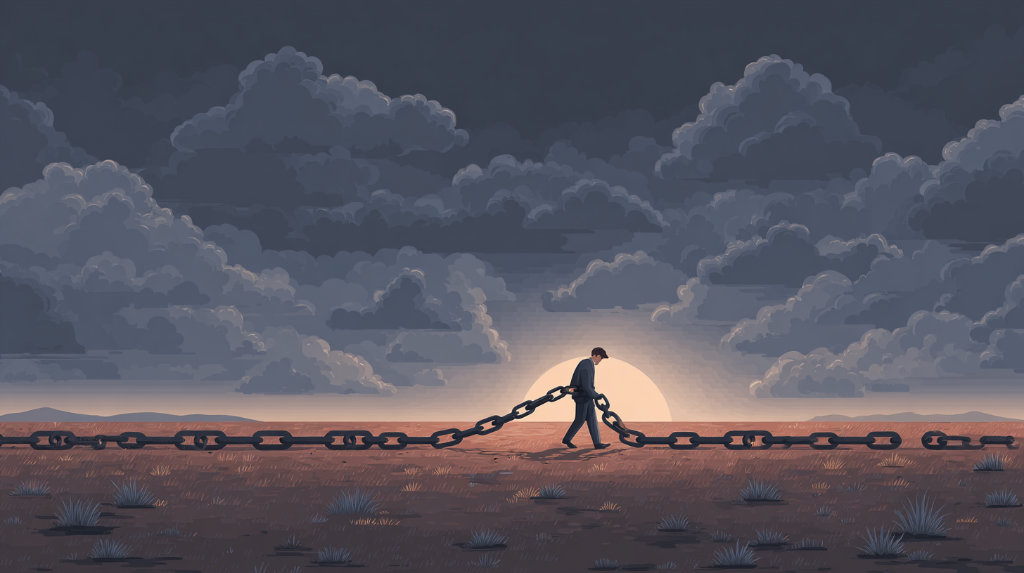Stop Obsessing Over Backlinks — They Don’t Matter Like They Used To

Introduction: The Myth That Won’t Die
If you ask most marketers what SEO is, they’ll probably say: "Keywords and backlinks." And sure, that answer worked in 2010. But it’s 2025 now, and the rules have changed.
Backlinks have long been treated like the holy grail of SEO. Agencies promise them, bloggers chase them, and entire SaaS tools are built to track them. But here’s the uncomfortable truth: backlinks aren’t what they used to be.
If you're still obsessing over link building as your primary SEO strategy, you might be wasting your time. Worse, you could be hurting your site.
In this article, we’ll dismantle the backlink obsession, show you what Google actually values now, and guide you toward a healthier, smarter SEO strategy that lasts.
Backlinks: A Brief (and Glorious) History
When Google launched, its revolutionary algorithm (PageRank) used backlinks as a major ranking factor. It made sense: links were like votes of confidence.
But fast forward 20+ years, and that signal has been heavily diluted:
-
🧠 Links are easy to manipulate (hello, PBNs and link farms)
-
💰 They’ve become a commodity (you can buy them by the dozen)
-
🧹 Google’s algorithm has evolved to spot unnatural patterns
Yes, backlinks still matter — but not in the way people think.
Back then, the internet was smaller, and link signals had clarity. A link from a respected site could rocket your content to the top. But today, Google's understanding of a page’s value comes from a web of factors — not just a hyperlink. It analyzes everything from semantic intent to engagement behavior.
The Real Reason Your Backlinks Don’t Work
Here’s a hard pill to swallow:
You can have 1,000 backlinks and still get no traffic.
Why? Because links aren’t a replacement for relevance, content quality, or user experience. Google doesn’t just look at how many links you have — it looks at why you have them, and what kind they are.
A few toxic backlink truths:
-
A link from a spammy directory? Worthless.
-
A link from a random blog post with no traffic? Ignored.
-
A link with no contextual alignment? Devalued.
It’s not about "more." It’s about meaningful.
And meaningful is getting harder to fake.
Here’s the kicker: Google has invested billions in AI to detect link schemes. If your site has links that were earned through unnatural tactics — even guest posting networks or excessive anchor text — you might be penalized or simply ignored.
What Google Actually Values in 2025
Here’s what the smartest SEO strategies in 2025 are built around:
1. Usefulness Over Popularity
Content that solves real problems, answers real questions, and keeps people engaged will win.
Is your content saving someone time? Helping them make a decision? Making their day easier? That’s usefulness — and that’s what Google rewards.
2. EEAT (Experience, Expertise, Authoritativeness, Trustworthiness)
Google cares who wrote it, why they’re credible, and if they actually have real-world experience.
If you’re a chef writing about food, your recipe will beat the affiliate blog that just rewrote the top result. Authority is no longer a backlink game — it's about real-life value.
3. On-Page Experience
Core Web Vitals, mobile usability, clarity of structure. It’s not just about getting people to your site — it’s about keeping them there.
Even subtle things like annoying popups, font choices, or image placement can affect your bounce rate — and your rankings.
4. Engagement Signals
-
Time on page
-
Scroll depth
-
Bounce rate
-
Pogo-sticking (when people click your link then bounce back to Google immediately)
These tell Google: "Did this page deliver?"
5. Topical Authority
Not one page with 10 backlinks. Ten great pages covering your niche comprehensively.
Google rewards consistency, depth, and structure more than raw link counts. If your site builds clusters of well-structured, related content, your chances of ranking go up — even without a single external link.
6. Content Refresh & Maintenance
Outdated content kills authority. Updating, revising, and keeping content relevant is more powerful than any backlink campaign. Google wants to serve what’s current — not what once ranked.
The Emotional Cost of Chasing Backlinks
Let’s get real: building backlinks is a grind.
-
Cold outreach sucks your time and energy
-
Buying links is risky (and expensive)
-
Creating content for backlinks can suck the soul out of your brand
You end up chasing validation from strangers instead of building genuine value.
And here's the emotional kicker:
You might be putting in all that effort... for nothing.
There’s something demoralizing about seeing your DR (domain rating) climb but your traffic flatline.
You start questioning yourself, your content, your team. When the problem isn’t you — it’s the outdated game you’re playing.
Worse, it’s addictive. Every backlink you land gives you a hit of dopamine. But when that doesn’t convert to visibility or revenue, it starts to feel hollow.
This obsession can even derail your content strategy. Instead of writing what your audience needs, you write what you think someone might link to — often resulting in thin, generic content.
A Better SEO Strategy (That Doesn’t Rely on Links)
Let’s rebuild your strategy from the ground up. Here’s how:
1. Start with Your Audience
What are they actually searching for? Use tools like AlsoAsked, Google Autosuggest, Reddit threads, and even Quora to uncover real questions.
Listen more than you publish. SEO in 2025 starts with empathy.
2. Create Real Solutions, Not Just Content
Don’t just answer the query. Guide them. Show examples. Give templates. Be better than whatever ranks #1 today.
Go deeper. Add stories. Add case studies. Make your content unforgettable.
3. Make It Incredibly Easy to Consume
Use spacing, visuals, summaries, and clean UX. Don’t write for Google. Write for people in a hurry.
Also: accessibility. Use proper heading structures, alt text, and readable contrast ratios. A great experience boosts SEO indirectly.
4. Link Internally Like a Librarian
Don’t just publish and pray. Create topic clusters. Connect your content so readers (and Google) can navigate your expertise.
Think of your website like a well-organized textbook. Every chapter supports another. That internal cohesion builds trust.
5. Track Real Metrics, Not Vanity
Forget DR, link counts, or Ahrefs score. Focus on:
-
Organic traffic growth
-
Conversions
-
Time on site
-
User engagement
That’s what matters. And that’s what actually tells you if your content strategy is working.
6. Build Brand, Not Just Rankings
Be quotable. Be helpful. Be memorable.
If people trust your brand, they’ll seek you out — even without searching.
That’s when you’ve really won SEO.
Conclusion: Time to Evolve
If you’re still focused on backlinks in 2025, you’re driving with the rearview mirror. It’s not that links don’t matter at all — it’s that they’re no longer the main character.
Content, experience, and genuine value have taken the lead. The SEO game isn’t about chasing anymore — it’s about earning.
Stop playing the old game.
Start building the kind of site people want to visit, link to, and remember.
Let your backlinks come naturally.
The new SEO isn’t about pleasing an algorithm — it’s about serving a human.
And when you do that, the rankings follow.
TL;DR
-
Backlinks still count, but not like they used to
-
EEAT, usefulness, and user engagement matter more
-
You don’t need 100 links — you need 1 good reason for people to stay
-
Stop chasing links. Start building value
This is the SEO that wins in 2025.


